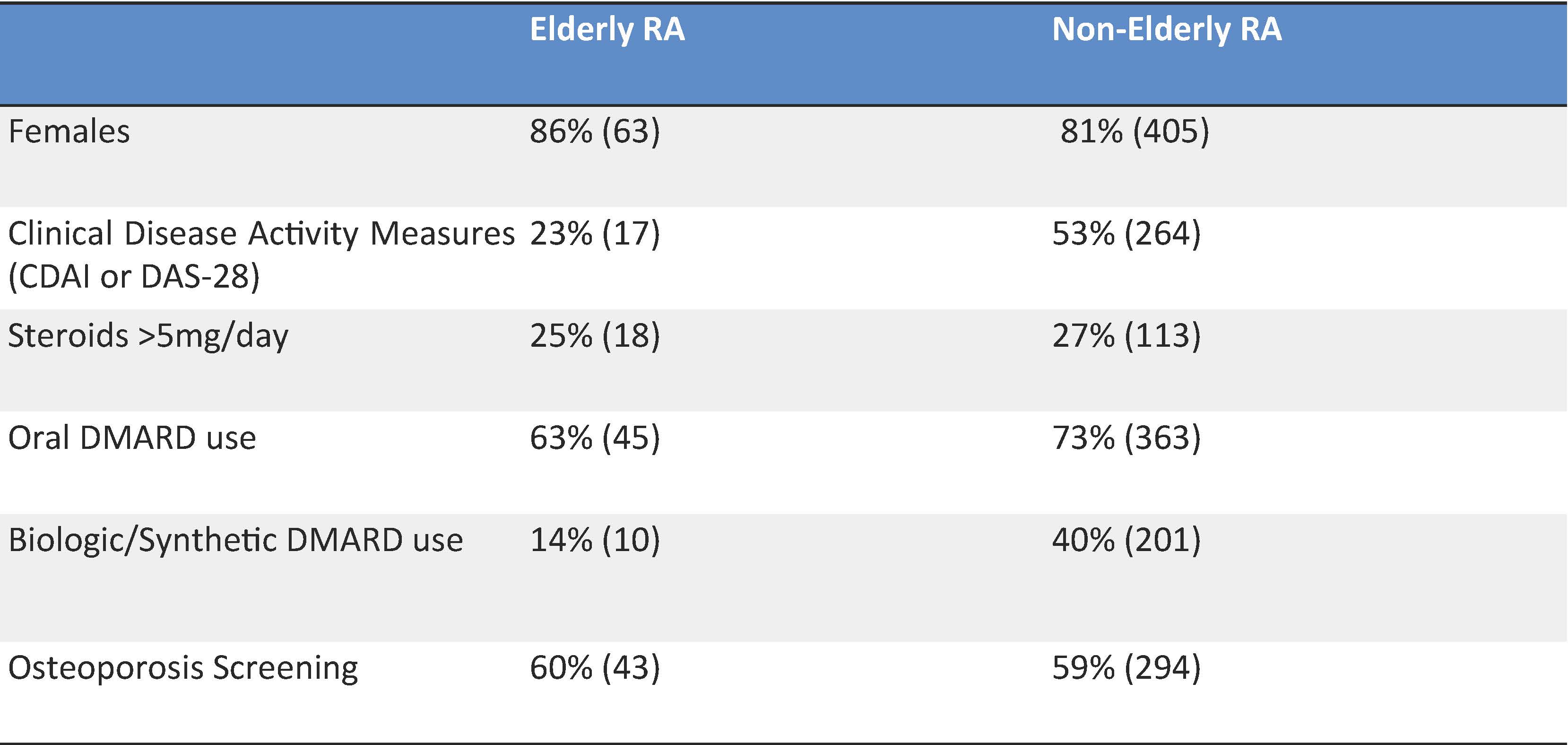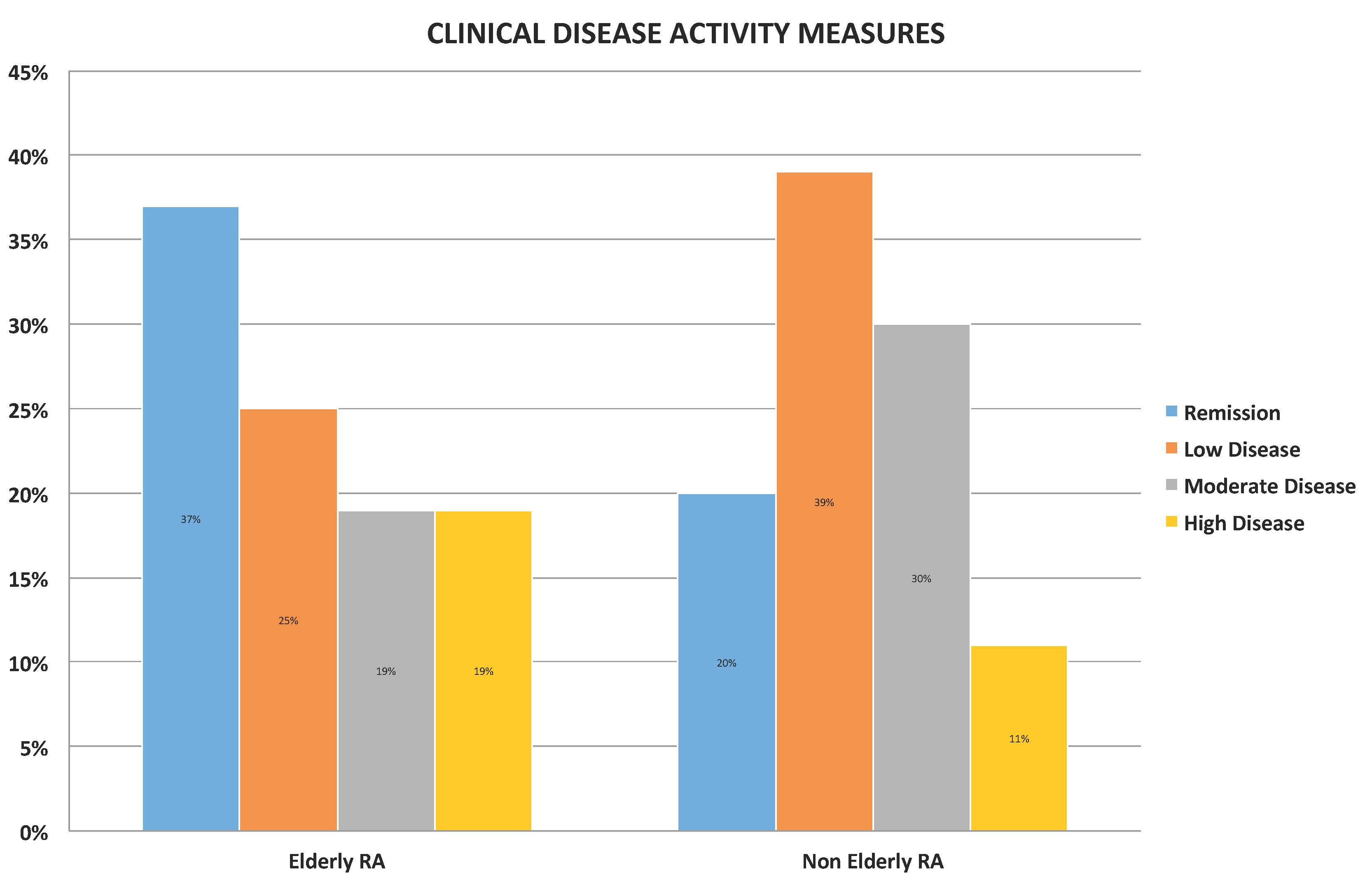Session Information
Date: Sunday, November 10, 2019
Title: Patient Outcomes, Preferences, & Attitudes Poster I: Patient Reported Outcomes
Session Type: Poster Session (Sunday)
Session Time: 9:00AM-11:00AM
Background/Purpose: With the advent of biologic therapy for RA, the American College of Rheumatology advocates a treat to target (TTT) approach in the treatment of RA with the goal of achieving remission or low disease activity. In this study we analyse the frequency of use of clinical disease activity measures such as DAS28 and the clinical disease activity index (CDAI) in elderly RA as a measure of how aggressively rheumatologists treat elderly RA patients to minimal disease activity. We hypothesized that rheumatologists are less likely to measure disease activity in elderly patients and less likely to treat them to minimal disease activity with biologic and targeted synthetic DMARDs.
Methods: In this retrospective cohort study, patient data was collected by review of electronic medical records of patients in our academic rheumatology clinic for 34 months (March 2015-December 2017). Patients over the age of 75 with a diagnosis of RA based on two ICD9 or ICD10 codes on at least 2 office visits were included in the study. A control group consisted of RA patients of ages 41-70. Patients with history of positive TB testing, HIV infection, active viral hepatitis, liver disease with AST/ALT 2x normal limits, history of organ transplantation, and/or active malignancy were excluded from the study.
Results: A total of 72 elderly RA patients were included in the study group; the control group had a total of 459 patients. 23% (n=17) of study group patients had disease activity measures as compared to 53% (n=246) in the control group. Out of the patients who had disease measurements, 64% (n=11) of the study group had low/minimal disease activity as compared to 59% (n=140) of controls.
Conclusion: Our results suggest a provider bias in treating elderly patients with RA with a less aggressive approach. Rather than using objective disease activity scores with a TTT approach to achieve minimal levels of disease activity and better patient outcomes, our clinic experience shows that providers less frequently use disease activity measures in elderly patients, and less frequently use biologic and targeted synthetic DMARDs. As rheumatologists increasingly adopt the TTT approach in management of RA, including objective documentation of disease activity, it is important to extend this to all segments of the population, including older patients.
To cite this abstract in AMA style:
Joseph V, Vontela S, Dheer S, Weinberg M, Haq Z, Jayatilleke A. Treat-to-Target Approach in the Management of Elderly Rheumatoid Arthritis Patients [abstract]. Arthritis Rheumatol. 2019; 71 (suppl 10). https://acrabstracts.org/abstract/treat-to-target-approach-in-the-management-of-elderly-rheumatoid-arthritis-patients/. Accessed .« Back to 2019 ACR/ARP Annual Meeting
ACR Meeting Abstracts - https://acrabstracts.org/abstract/treat-to-target-approach-in-the-management-of-elderly-rheumatoid-arthritis-patients/


